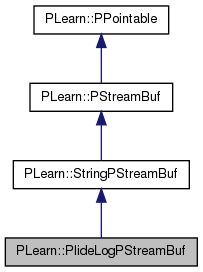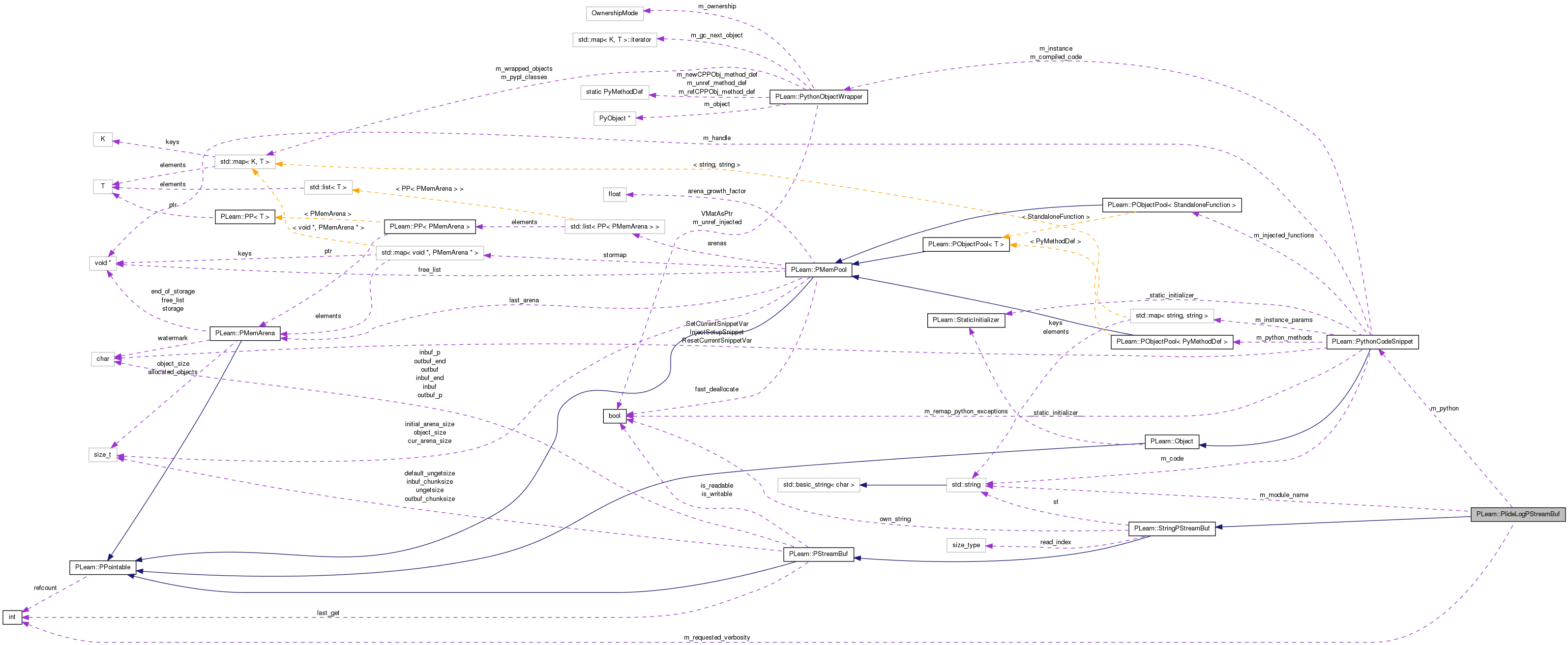|
PLearn 0.1
|
|
PLearn 0.1
|
This class sends stuff to the PlideLog when it's flushed. More...


Public Member Functions | |
| PlideLogPStreamBuf (string *s, PythonCodeSnippet *python) | |
| void | outputParameters (const string &module_name, int requested_verbosity) |
| Establish current-mode module-name and verbosity. | |
| virtual void | flush () |
| Flush actually invokes the Python function LogAppend if the string is not empty, and it empties it. | |
Protected Attributes | |
| PythonCodeSnippet * | m_python |
| string | m_module_name |
| int | m_requested_verbosity |
Private Types | |
| typedef StringPStreamBuf | inherited |
typedef StringPStreamBuf PLearn::PlideLogPStreamBuf::inherited [private] |
Reimplemented from PLearn::StringPStreamBuf.
| PLearn::PlideLogPStreamBuf::PlideLogPStreamBuf | ( | string * | s, |
| PythonCodeSnippet * | python | ||
| ) | [inline] |
Definition at line 151 of file Plide.cc.
: inherited(s, "w"), m_python(python), m_requested_verbosity(-1) { }
| void PLearn::PlideLogPStreamBuf::flush | ( | ) | [virtual] |
Flush actually invokes the Python function LogAppend if the string is not empty, and it empties it.
Reimplemented from PLearn::PStreamBuf.
Definition at line 176 of file Plide.cc.
References PLearn::flush(), and PLASSERT.
{
PLASSERT( st && m_python );
inherited::flush();
if (! st->empty()) {
m_python->invoke("LogAppend", m_module_name, m_requested_verbosity, *st);
st->clear();
}
}

| void PLearn::PlideLogPStreamBuf::outputParameters | ( | const string & | module_name, |
| int | requested_verbosity | ||
| ) |
Establish current-mode module-name and verbosity.
Definition at line 170 of file Plide.cc.
{
m_module_name = module_name;
m_requested_verbosity = requested_verbosity;
}
string PLearn::PlideLogPStreamBuf::m_module_name [protected] |
PythonCodeSnippet* PLearn::PlideLogPStreamBuf::m_python [protected] |
int PLearn::PlideLogPStreamBuf::m_requested_verbosity [protected] |
 1.7.4
1.7.4